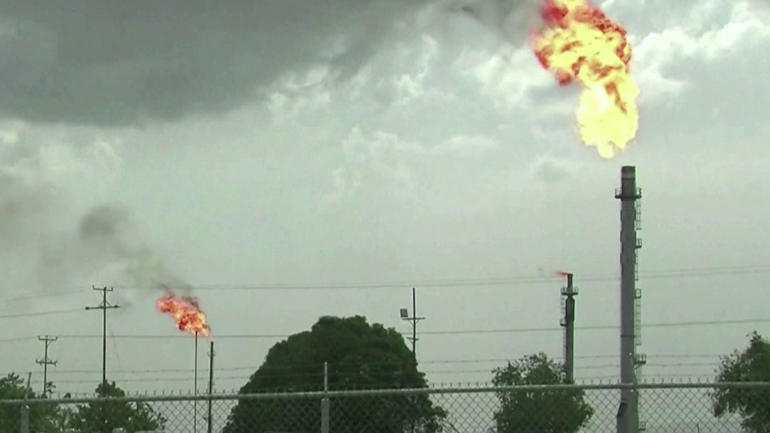The Trump administration is playing down the impacts of newly announced sanctions on the Venezuelan oil company Petroleos de Venezuela SA (PDVSA) and its subsidiaries. But oil industry experts say they are already having dramatic impacts globally.
CGTN’s Daniel Ryntjes reports.
The Trump administration’s decision to sanction the state-owned oil company PDVSA is expected to reduce Venezuela’s crude output this month, by about 300,000 barrels per day to a total of below 800,000 barrels per day. Venezuela can no longer import American naphtha, a product that is needed to dilute Venezuelan heavy crude into a usable fuel.
“There are no exceptions to that ban on the exports from the U.S. to Venezuela of those dilutents. So that’s an immediate impact of the sanctions regime. That will also require some shifting of who else can provide those dilutants. So that will take some time to find some alternative sources,” Paula Garcia Tufro from Atlantic Council said.
Years of underinvestment in domestic oil infrastructure has led to over a quarter of Venezuela’s crude being shipped to U.S. refineries.
The Trump administration is allowing those operators to continue for phase-out periods lasting several months as they begin sourcing from other parts of the world.
“There is plenty of supply at sea that’s already been paid for. So there’s inventories, there’s been excess oil. I’m sure many of our friends in the Middle East will be happy to make up the supply as we push down Venezuela’s supply,” U.S. Treasury Secretary Steven Mnuchin said.
“If you are Maduro, you’re not going to want to continue to export that oil to the United States if that money is not flowing back to you in the form of revenues. And so it effectively grinds to a halt the flow to the U.S. because there’s a disincentive from the Maduro standpoint of continuing to sent that oil,” said Paula Garcia Tufro from Atlantic Council.
PDVSA is now stopping some tankers from delivering crude contracts that were signed before the new sanctions were announced.
In the longer term though, the U.S. will seek to improve methods of delivering heavy crude from Canada and Mexico.
For now, crude prices have not risen dramatically because there are still abundant crude supplies for U.S. refiners domestically and on global markets.
 CGTN America
CGTN America

